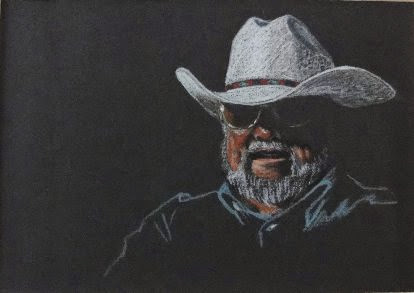My wife can’t stand to watch the news anymore, so she
retreats to another room and watches old black and white films. Actually, I join her when I think my head
will explode over the actions of the morons running our country. Generally these old films have a good plot,
no profanity, only suggested sex, some violence but devoid of entrails
exploding on the screen, and most don’t require special effects.
Film noir is a cinematic style of the ‘40s and ‘50s depicting
the dichotomy between the dark and the beautiful. Taken from the French meaning, “black film,”
most of these films are easily recognized by the use of light and shadow and
usually involve detectives, crime, and mystery.
As you know, I have an interest in the emergence of
traditional American jazz in New
Orleans. If a
director could eliminate the criminal aspects of film noir and capture the mood
of those early musicians in the dark style of film noir, I would be
hooked. See if any scenes pop into your
mind as you read this article.
* * *
As an art form, jazz is America’s unique contribution to the world. It is purely American. It began and thrived in the south, nurtured by black musicians expressing emotions from blues to joy. For example, funerals for musicians would begin with local musicians marching slowly in honor of the deceased playing a song like, “Just a Closer Walk with Thee,” soulfully and in a slow tempo on the way to the gravesite.
Upon reaching the gravesite, the music changed, expressing the joy that their deceased brother had reached the promise land. Fast, happy, exuberant jazz suddenly turned the event into a joyous celebration. The music would change to something up tempo with a positive message like, “Didn’t He Ramble.”
Patrons are long gone or busy upstairs while musicians from other venues stop in to continue playing music strictly for themselves. Generally musicians play for other musicians who “hear what they’re saying” and understand the language of music. The audience is secondary.
As he stumbles into his humble abode this musician has no idea that he is building the first steps on a musical staircase to the future where Louis Armstrong will add a major step, Harry James will add another, Dizzy Gillespie will add a step, Miles Davis will add another, all the way up the staircase to Al Hirt, Doc Severinsen, and Winton Marsalis.
That trumpet player jamming with his musical buddies at the turn of the century kicked off the colorful musical language that continues to evolve today. Those were the days of King Oliver’s Creole Jazz band, Kid Ory, Louis Armstrong, , and many other New Orleans musical “saints.” Generally the groups were made up of black musicians, but there were also white players like Bix Beiderbecke and the Wolverines in the '20s who spoke the same musical language.
I used trumpet players in this example because that is my instrument, but you can follow the same evolution on the keyboard with Fats Waller, Count Basie, Dave Brubeck and other great jazz piano players, numerous sax players, and many others.
There’s a part of me that would like to have been that lone figure in the film noir scene with a trumpet case under his arm, leaving an all-night jam session sharing Bourbon Street with those musical giants of the past. The musicians who were at the bedside in New Orleans for the “Birth of the Blues” had no idea that they created America's only unique musical form.


